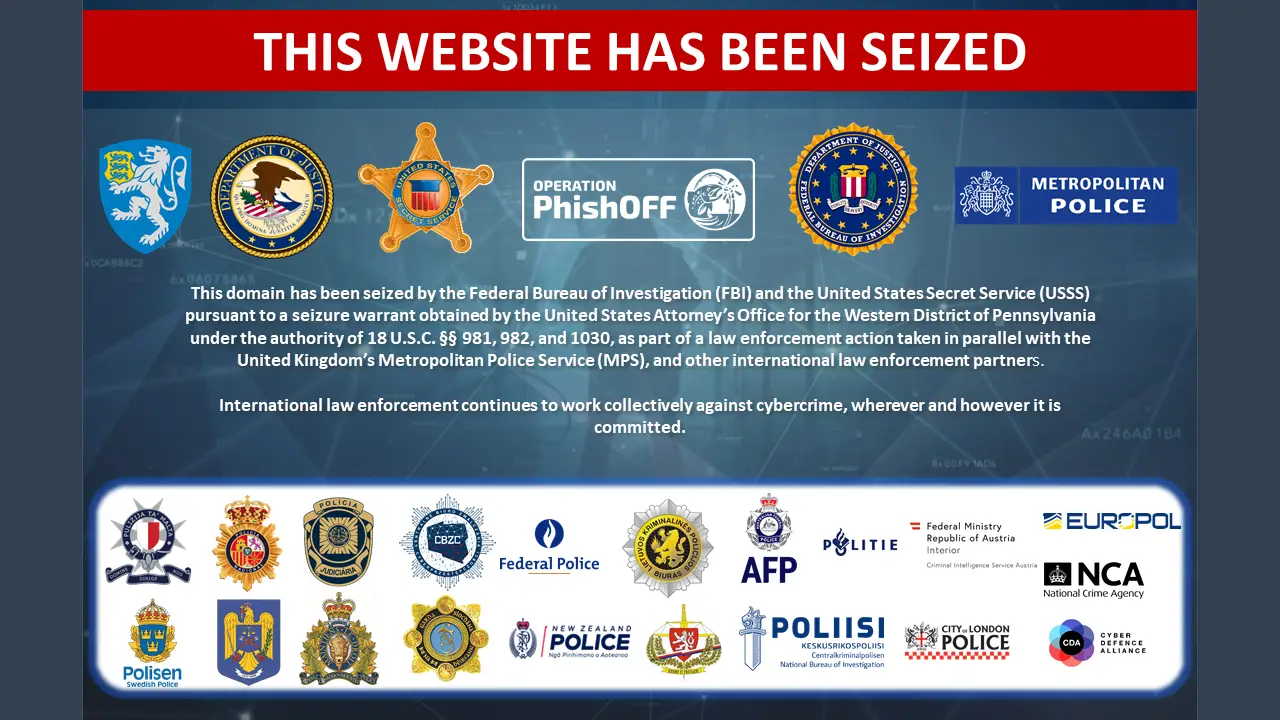Major Wins Against Cybercrime Services and Ransomware

Law enforcement authorities have scored significant victories in the battle against cybercrime by taking down a major phishing-as-a-service platform and charging the operator of a large ransomware-deploying botnet.
In the first case, a coordinated operation by multiple agencies has shut down LabHost, one of the internet's biggest providers of phishing services. LabHost allowed cybercriminals to pay for tools and infrastructure to conduct phishing attacks at scale, helping enable countless incidents of fraud, data theft, and financial crime. Phishing involves tricking users into entering login credentials, financial information, or other sensitive data on fake websites designed to impersonate legitimate organizations. The LabHost platform offered phishing kits (email templates), hosting (storage/privacy services), domain services (internet address) and other components to automate and streamline these kinds of attacks.
While full details have not been released, the LabHost takedown likely involved seizing infrastructure, gathering intelligence, and possibly arrests of the administrators and resellers involved in the platform. The operation was a collaborative effort across law enforcement cybercrime units in multiple countries.
Separately, the U.S. Department of Justice announced charges against a Moldovan man for operating the "Baller Vert" botnet and using it to deploy a variety of damaging ransomware strains. A botnet is a network of hacked computers that can be controlled remotely. According to prosecutors, the Baller Vert botnet consisted of over 200,000 compromised systems, many located in the U.S. Through this botnet, the defendant allegedly unleashed ransomware attacks across numerous businesses and organizations, extorting ransom payments in cryptocurrency. Ransomware is a particularly devastating form of malware that encrypts a victim's files and systems, rendering them unusable until a ransom is paid to recover data and access. Botnets like Baller Vert allow ransomware gangs to disseminate infections on a massive scale rapidly.
These two legal actions represent major blows against the global cybercrime ecosystem by going after the critical services and infrastructure that power a vast array of online criminal businesses. Just as legitimate enterprises rely on a supply chain of vendors, tools, and platforms, cybercriminals have built an underground economy offering illicit products and services as building blocks for fraud, extortion, and other attacks.
Phishing-as-a-service operations like LabHost are pernicious suppliers, renting out the capabilities for cyber criminals to rapidly deploy credential theft, malware distribution, and financial fraud schemes on an industrial scale. Without these turnkey phishing solutions, many threat actors would face major hurdles in executing attacks. Similarly, botnets like Baller Vert function as malicious cyber-mercenaries for hire, enabling criminals to marshal large-scale distributed firepower for ransomware deployment, DDoS attacks, crypto-jacking, and other malware campaigns. The takedown of these zombie networks directly disrupts the infrastructure used in these devastating crimes.
By taking aim at these facilitators within the cybercrime supply chain, law enforcement is targeting key intervention points that can have ripple effects across multiple threat groups, campaigns, and criminal business models. These operations impede the ease of entry, access to capabilities, and force-multiplying services that have allowed such a surge in cyber attacks in recent years.
However, while hugely impactful, these actions only chip away at the sprawling global cybercrime economy. There are always new players looking to fill the void by spinning up the next phishing service, botnet, or other criminal facilitator. Sustained and coordinated efforts that continually disrupt and increase the costs for these capability providers will be needed to truly degrade the cyber crime supply chain over time.
Nonetheless, the LabHost and Baller Vert cases demonstrate meaningful progress. They show law enforcement's increasing ability to take the fight directly to the questionable businesses and infrastructures underpinning cybercrime as a whole. Such strikes diminish the criminal services supply chain, forcing threat actors back to square one without their illicit force multipliers. This degrades the efficacy and reach of countless cyber-attacks worldwide.



